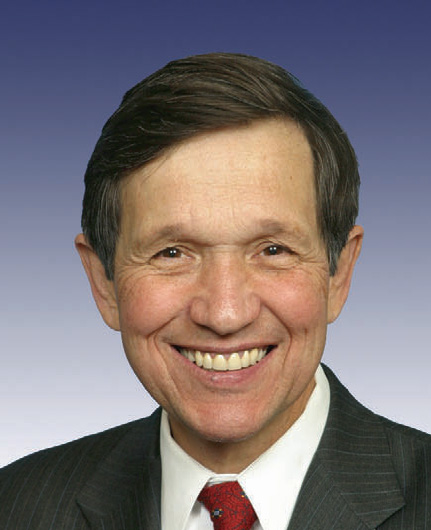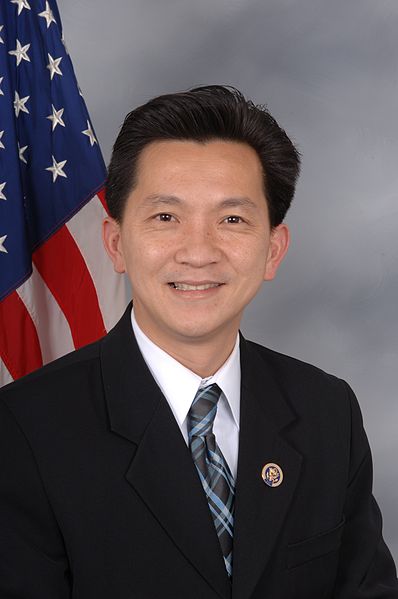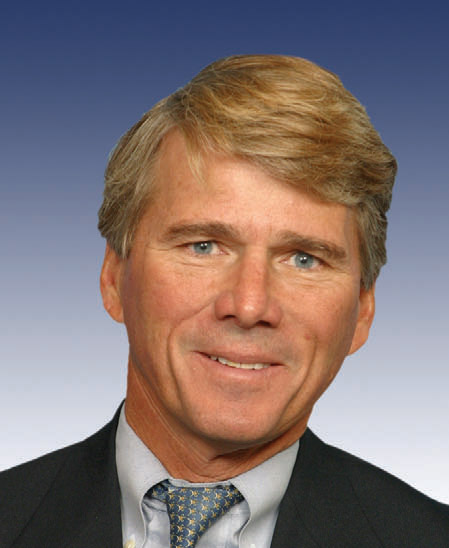Winston is such an animal, such a lot of animals, that I bet you can't take in all the magnificence. Seriously, watch a few but don't hurt yourself by trying to watch them all.
This is why my friends don't let me pick the YouTube videos. Occasionally I do find a good one. Bullocks to those who won't let you embed.
Monday, March 29, 2010
Sunday, March 28, 2010
The Commander in Chief in Afghanistan

Barack Obama promised during his campaign he would take the fight back to Al Qaeda and the Taliban in Afghanistan. He's done that and has the casualties to show for it, as well as a Christmas Day airline bombing attempt. And shows no sign that he will back down.

President Obama addresses our troops at Bagram Air Base in Afghanistan on Sunday. He flew in and flew out under cover of darkness.

You have to admire the American soldiers. I recall the steely resolve with which President Obama was received at West Point last year. Many of those graduating cadets are now serving their first commissions in Afghanistan.
The Republican Avengers

Yes, that was Sarah Palin wearing her best leather jacket at campaign stops for John McCain's U.S. Senate race in Arizona. All John McCain needs is a tie and perhaps a bowler hat.
Emma Peel (Dianna Rigg) and John Steed (Patrick Macnee).

John Steed (Patrick Macnee) and Cathy Gale (Honor Blackman).

We'll observe that Sarah Palin's Emma Peel look is redundant. Cindy McCain can play the blond Cathy Gale, and get John McCain to button his shirt and put on a tie.
Saturday, March 27, 2010
Will Health Care Reform Hurt Obama in 2012?
Polls show a lot of Americans opposed to or at least skeptical about health care reform. So how does health care reform affect President Obama's chances for reelection in 2012? Not as much as you might think.
Barack Obama won the 2008 election handily with 365 electoral votes to 173 for John McCain. If everyone in states like Georgia, Alabama, Mississippi, Louisiana, and Texas hates health care reform, that doesn't change the results of the election, as those states all voted Republican in 2008 and likely will again in 2012. Majorities in all 22 states that voted for John McCain can hate health care reform with no impact on the Presidential election result.
What matters is the 28 states that Barack Obama won. And there is a problem. First, those states are projected to lose 7 electoral votes due to the 2010 census. McCain states gained population relative to Obama states, so they will pick up electoral votes. If Barack Obama wins the same states again in 2012, he would win 358 to 180.
Florida, North Carolina, and Virginia are the three states Barack Obama won where health care reform is least popular. The Congressional delegations in those states voted against health care reform, and they will be campaigning for repeal. These three states will represent 66 electoral votes, so losing them in 2012 would make the electoral vote 292 to 246. Barack Obama still wins.
But there was also a big group of states where the Congressional delegations were split on health care reform. These count for 95 electoral votes and include New Jersey, Pennsylvania, Ohio, Indiana, Michigan, Iowa, and Minnesota. If Barack Obama were to lose all these states, he would lose the 2012 election 197 to 341.
These states run straight into middle America, and the Democratic strategy for 2012 better be to win these. Barack Obama came to the White House from Illinois, so the Midwest states should be the heart of his natural political base, And where did Barack Obama go after health care reform passed? Iowa. So he gets the picture.
Health care reform could cost Republicans some states they won in 2008. Arizona, North Dakota, Montana, and West Virginia represent 22 electoral votes and their Congressional delegations voted for health care reform.
A lot will happen before 2012, most particularly the fall 2010 Congressional elections. The Democrats expect to lose seats, and could very well lose the House and possibly even the Senate. But that could strengthen Barack Obama, in the way that the loss of House and Senate to Republicans in 1994 led to Bill Clinton's landslide reelection in 1996.
Barack Obama won the 2008 election handily with 365 electoral votes to 173 for John McCain. If everyone in states like Georgia, Alabama, Mississippi, Louisiana, and Texas hates health care reform, that doesn't change the results of the election, as those states all voted Republican in 2008 and likely will again in 2012. Majorities in all 22 states that voted for John McCain can hate health care reform with no impact on the Presidential election result.
What matters is the 28 states that Barack Obama won. And there is a problem. First, those states are projected to lose 7 electoral votes due to the 2010 census. McCain states gained population relative to Obama states, so they will pick up electoral votes. If Barack Obama wins the same states again in 2012, he would win 358 to 180.
Florida, North Carolina, and Virginia are the three states Barack Obama won where health care reform is least popular. The Congressional delegations in those states voted against health care reform, and they will be campaigning for repeal. These three states will represent 66 electoral votes, so losing them in 2012 would make the electoral vote 292 to 246. Barack Obama still wins.
But there was also a big group of states where the Congressional delegations were split on health care reform. These count for 95 electoral votes and include New Jersey, Pennsylvania, Ohio, Indiana, Michigan, Iowa, and Minnesota. If Barack Obama were to lose all these states, he would lose the 2012 election 197 to 341.
These states run straight into middle America, and the Democratic strategy for 2012 better be to win these. Barack Obama came to the White House from Illinois, so the Midwest states should be the heart of his natural political base, And where did Barack Obama go after health care reform passed? Iowa. So he gets the picture.
Health care reform could cost Republicans some states they won in 2008. Arizona, North Dakota, Montana, and West Virginia represent 22 electoral votes and their Congressional delegations voted for health care reform.
A lot will happen before 2012, most particularly the fall 2010 Congressional elections. The Democrats expect to lose seats, and could very well lose the House and possibly even the Senate. But that could strengthen Barack Obama, in the way that the loss of House and Senate to Republicans in 1994 led to Bill Clinton's landslide reelection in 1996.
Friday, March 26, 2010
What Happened to Senator Scott Brown?

Talk about high expectations. Republicans were euphoric when Scott Brown won the U.S. Senate seat for Massachusetts on January 19. He was going to be their 41st vote in the Senate filibuster against health care reform. He arrived in Washington, D.C. to take his seat on February 4. He had a certain swagger. Then he seemed to disappear.
Not invited by Republican leaders to the health care summit with President Obama. Not seen on Fox News or in the mainstream media. Not heard on the Senate floor. Whispers that Scott Brown is a RINO, Republican in name only. That he is not a true conservative.
And then this week the health care reform legislation passes anyway, and Scott Brown's historic and ostensibly game-changing victory of just two months ago seems a distant and no longer relevant memory.
The Boston Herald, which endorsed him in the special election, suggests that the Scott Brown victory backfired. Boston University Professor Thomas Whalen offers this judgment on Scott Brown.
"His election was supposed to spell the death knell of health-care reform. If anything, it pushed the President to redouble his efforts."
Thursday, March 25, 2010
Mandating the American Dream at $1.90 per Day
The part of the new health care reform act signed by President Obama on Tuesday that seems to be generating the most controversy is the individual mandate to buy health insurance.
The idea is that if you do not have health insurance, you are a burden on the system. And you have to pay a penalty tax for $695 a year. And, by the way, since you don't have to pay the tax if buy health insurance, why don't you just do that?
Now $695 sounds like a lot of money, but it's only about $57.92 a month or $1.90 a day. Most people can afford that. Buying health insurance costs a lot more than that. But if you pay the $695 you still can have medical bills and still don't have health insurance, so are you getting the message yet? Go buy health insurance.
But the cost of health insurance, particularly for those without jobs, is high. It's also high for people with jobs, but often the employer picks up a big share of the tab which masks the total cost from the employee. One of the biggest shocks of being laid off is the sticker shock on the cost of maintaining one's health insurance.
Often there are few or no affordable choices, and the new health care reform act provides subsidies to help with that. But, still, it's the principle of the thing that has some people up in arms.
Is it Constitutional? Despite all the rhetoric that Americans are being forced to buy a product for the first time in our history, you don't have to buy health insurance. You can pay the tax instead. At least that's the legal argument. We'll see. The state of Massachusetts has an individual health insurance mandate already and that has not been held unconstitutional (but that's a state not the federal government).
Is it good policy? Maybe, if you are trying to fairly allocate the costs of health care across all segments of the populace which may call upon those services. It's better policy than turning away people without insurance at the door of the emergency room.
Is it good for the health care industry? Yes. If you sell health insurance you just got some new customers. If you are a hospital, you just got a broader source of revenue. If you are a doctor with uninsured patients, you are more likely to get paid. There are other provisions of the health care reform act different parts of the industry don't like, but this part it probably likes.
Is it good for people? If you make $250,000 a year, the $695 individual mandate is just another nuisance. You can make back that money in just 1.33 minutes a day, and you probably are exempt because you already have health insurance, the other taxes in the health care reform act are probably your real concern. If you are working a full time minimum wage job for $7.25 an hour, it will take you 23 minutes a day to work off the mandate, likely longer if you buy health insurance, but that may be less depending on how the subsidies work out.
Is it good politics? America doesn't like taxes, and doesn't like being told what to buy, but also doesn't like freeloaders.
The idea is that if you do not have health insurance, you are a burden on the system. And you have to pay a penalty tax for $695 a year. And, by the way, since you don't have to pay the tax if buy health insurance, why don't you just do that?
Now $695 sounds like a lot of money, but it's only about $57.92 a month or $1.90 a day. Most people can afford that. Buying health insurance costs a lot more than that. But if you pay the $695 you still can have medical bills and still don't have health insurance, so are you getting the message yet? Go buy health insurance.
But the cost of health insurance, particularly for those without jobs, is high. It's also high for people with jobs, but often the employer picks up a big share of the tab which masks the total cost from the employee. One of the biggest shocks of being laid off is the sticker shock on the cost of maintaining one's health insurance.
Often there are few or no affordable choices, and the new health care reform act provides subsidies to help with that. But, still, it's the principle of the thing that has some people up in arms.
Is it Constitutional? Despite all the rhetoric that Americans are being forced to buy a product for the first time in our history, you don't have to buy health insurance. You can pay the tax instead. At least that's the legal argument. We'll see. The state of Massachusetts has an individual health insurance mandate already and that has not been held unconstitutional (but that's a state not the federal government).
Is it good policy? Maybe, if you are trying to fairly allocate the costs of health care across all segments of the populace which may call upon those services. It's better policy than turning away people without insurance at the door of the emergency room.
Is it good for the health care industry? Yes. If you sell health insurance you just got some new customers. If you are a hospital, you just got a broader source of revenue. If you are a doctor with uninsured patients, you are more likely to get paid. There are other provisions of the health care reform act different parts of the industry don't like, but this part it probably likes.
Is it good for people? If you make $250,000 a year, the $695 individual mandate is just another nuisance. You can make back that money in just 1.33 minutes a day, and you probably are exempt because you already have health insurance, the other taxes in the health care reform act are probably your real concern. If you are working a full time minimum wage job for $7.25 an hour, it will take you 23 minutes a day to work off the mandate, likely longer if you buy health insurance, but that may be less depending on how the subsidies work out.
Is it good politics? America doesn't like taxes, and doesn't like being told what to buy, but also doesn't like freeloaders.
Wednesday, March 24, 2010
Whereas Ann Coulter is a Hateful Woman Who Violates an Unwritten Code of 'Positive-space'
Ann Coulter was supposed to speak yesterday at Ottawa University in Canada. But that was before the Ottawa University Student Federation denounced her visit in a set of emergency resolutions and the event had to be canceled:
"Whereas Ann Coulter is a hateful woman;
"Whereas she has made hateful comments against GLBTQ, Muslims, Jews and women;
"Whereas she violates an unwritten code of 'positive-space';
"Be it resolved that the SFUO express its disapproval of having Ann Coulter speak at the University of Ottawa."
We want to know what is in the unwritten code of 'positive-space' but unfortunately and unsurprisingly it doesn't seem to be written down anywhere on the internet. Could it be something like the Code of the West? We'll find out if Ann Coulter is able to speak tomorrow tonight in Western Canada at the University of Calgary.
The good news for Ann Coulter is that she no longer faces arrest and prosecution for failing to educate herself on what apparently passes for freedom of speech in Canada. Apparently it's a crime to be a hateful woman in Canada, at least that was the import of a letter to Ann Coulter from Francois Houle, the Vice-President Academic and Provost at the University of Ottawa.
I read Francois Houle as saying:
(1) Canada doesn't subscribe to the U.S. Bill of Rights granting freedom of speech.
(2) Canada requires self-censorship in expressing provocative and controversial opinions.
(3) Opinions deemed hate speech can get you jailed in Canada.
(4) Canadian defamation laws also limit freedom of expression.
(5) You can enjoy your stay in our beautiful country, city and campus as long as you keep your mouth shut.
O Canada, Francois Houle stands on guard for thee!
"Whereas Ann Coulter is a hateful woman;
"Whereas she has made hateful comments against GLBTQ, Muslims, Jews and women;
"Whereas she violates an unwritten code of 'positive-space';
"Be it resolved that the SFUO express its disapproval of having Ann Coulter speak at the University of Ottawa."
We want to know what is in the unwritten code of 'positive-space' but unfortunately and unsurprisingly it doesn't seem to be written down anywhere on the internet. Could it be something like the Code of the West? We'll find out if Ann Coulter is able to speak tomorrow tonight in Western Canada at the University of Calgary.
The good news for Ann Coulter is that she no longer faces arrest and prosecution for failing to educate herself on what apparently passes for freedom of speech in Canada. Apparently it's a crime to be a hateful woman in Canada, at least that was the import of a letter to Ann Coulter from Francois Houle, the Vice-President Academic and Provost at the University of Ottawa.
I read Francois Houle as saying:
(1) Canada doesn't subscribe to the U.S. Bill of Rights granting freedom of speech.
(2) Canada requires self-censorship in expressing provocative and controversial opinions.
(3) Opinions deemed hate speech can get you jailed in Canada.
(4) Canadian defamation laws also limit freedom of expression.
(5) You can enjoy your stay in our beautiful country, city and campus as long as you keep your mouth shut.
O Canada, Francois Houle stands on guard for thee!
Tuesday, March 23, 2010
Harvard Tops the College Pecking Order
Tuition and fees for undergraduates at select Universities for the 2010-2011 academic year.
These schools all maintain a commitment to need-based financial aid and provide access to load programs, so out-of-pocket cost is less for most students. Still, multiply those numbers by four years and that's a lot of pecking.
| School | Cost |
|---|---|
| Harvard | $50,724 |
| Stanford | $50,576 |
| MIT | $50,446 |
| Yale | $49,800 |
| Princeton | $48,580 |
These schools all maintain a commitment to need-based financial aid and provide access to load programs, so out-of-pocket cost is less for most students. Still, multiply those numbers by four years and that's a lot of pecking.
Glenn Beck Health Care Plan: Don't Get Eaten by Wolves
Glenn Beck announced his ideal health care plan last night. It's very simple. There are no mandates, no premiums, no forms to fill out, no nothing. Just throw the sick from the wagon train and let them be eaten by wolves.
Monday, March 22, 2010
House Democrats Voting No on Health Care Reform
Last night Democrats in the House of Representatives passed the Senate health care reform bill by a vote of 219 to 212, then passed a reconciliation measure to resolve differences between House and Senate by a vote of 220 to 211. This compares to the November vote, when health care insurance reform passed 220 to 215.
All the Republicans voted No, and were joined by a number of Democrats. But the vote totals indicate that not many minds in Congress were changed between the votes in November and March. The vote totals barely changed, and by my count 8 Democrats switched from No to Yes, while 6 Democrats and 1 Republican switched from Yes to No. With 435 members in the House, all this talk for and against health care reform these past 5 months has swayed just 15 members of Congress.
8 Democrats voted No on the House plan in November, but Yes on the Senate plan and Reconciliation plan in March:
3 Democrats voted Yes on the House plan in November but No on the Senate plan and Reconciliation plan in March:
2 Democrats voted Yes on the House plan in November, No on the Senate plan in March but Yes on the Reconciliation plan in March:
1 Democrat voted Yes on the House plan in November, Yes on the Senate plan in March but No on the Reconciliation plan in March:
29 Democrats voted No on all 3 measures:
1 Democrat who voted No on the House plan in November switched to the Republican Party in December and voted No on the Senate plan and Reconciliation plan in March:
1 Republican voted Yes on the House plan in November but No on both the Senate plan and Reconciliation plan in March:
1 Democrat who voted No on the House plan in November resigned in early March:
All the Republicans voted No, and were joined by a number of Democrats. But the vote totals indicate that not many minds in Congress were changed between the votes in November and March. The vote totals barely changed, and by my count 8 Democrats switched from No to Yes, while 6 Democrats and 1 Republican switched from Yes to No. With 435 members in the House, all this talk for and against health care reform these past 5 months has swayed just 15 members of Congress.
8 Democrats voted No on the House plan in November, but Yes on the Senate plan and Reconciliation plan in March:
| Betsy Markey Age 53 Emily's List member Colorado 4th |  |
| Allen Boyd Age 64 Blue dog coalition member Florida 2nd |  |
| Suzanne Kosmas Age 65 Emily's List member Florida 24th |  |
| Scott Murphy Age 39 New York 20th |  |
| Dennis Kucinich Age 63 Ohio 10th |  |
| John Boccieri Age 40 Ohio 16th |  |
| Bart Gordon Age 60 Blue dog coalition member Tennessee 6th |  |
| Brian Baird Age 53 Washington 3rd |  |
3 Democrats voted Yes on the House plan in November but No on the Senate plan and Reconciliation plan in March:
| Marion Berry Age 67 Blue dog coalition member Arkansas 1st |  |
| Mike Arcuri Age 50 Blue dog coalition member New York 24th |  |
| Zack Space Age 49 Blue dog coalition member Ohio 18th |  |
2 Democrats voted Yes on the House plan in November, No on the Senate plan in March but Yes on the Reconciliation plan in March:
| Dan Lipinski Age 43 Illinois 3rd |  |
| Stephen Lynch Age 54 Massachusetts 9th |  |
1 Democrat voted Yes on the House plan in November, Yes on the Senate plan in March but No on the Reconciliation plan in March:
| Jim Cooper Age 55 Blue dog coalition member Tennessee 5th |  |
29 Democrats voted No on all 3 measures:
1 Democrat who voted No on the House plan in November switched to the Republican Party in December and voted No on the Senate plan and Reconciliation plan in March:
| Parker Griffith Age 67 former Blue dog coalition member Alabama 5th |  |
1 Republican voted Yes on the House plan in November but No on both the Senate plan and Reconciliation plan in March:
 | Joseph Cao Age 42 Louisiana 2nd Cao was born in Vietnam and is the first Vietnamese-American to serve in Congress. |
1 Democrat who voted No on the House plan in November resigned in early March:
| Eric Massa Age 50 New York 29th |  |
Subscribe to:
Posts (Atom)




.jpg)
























